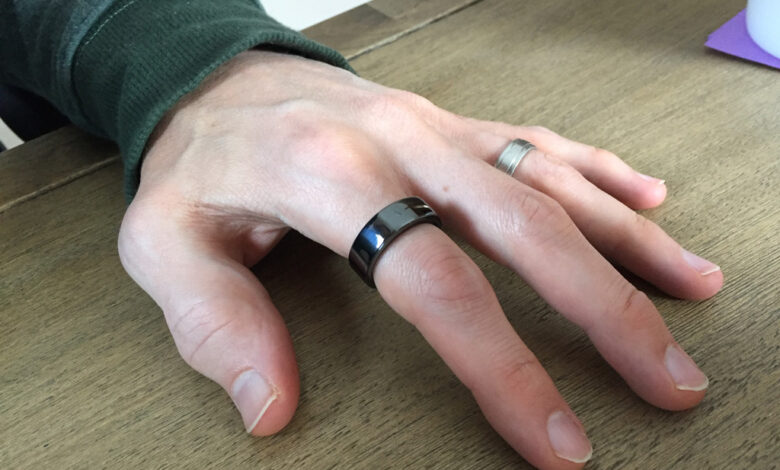Why DHA Cancels OuraRing Biometric Ring Solicitation: A Deep Dive into the $96 Million Reversal

Understanding the DHA Cancellation
Let’s unpack what happened when the Defense Health Agency (DHA) abruptly cancelled the “DHA Cancels Ouraring Biometric Ring Solicitation” —a headline that surprised both tech watchers and defense insiders alike.
In early March, DHA Cancels Ouraring Biometric Ring Solicitation confirmed it had canceled a $96 million solicitation for biometric ring trackers that it had planned to sole-source to Ouraring Inc., part of Finnish Oura Health. The move was blunt: “This acquisition is no longer required,” and the program was no longer considered a priority.
The solicitation originally surfaced last August on Sam.gov. It proposed using Oura smart rings and associated wellbeing services to support military medical staff by monitoring physiological metrics like stress, recovery, and resilience. The stated goal? Better performance, reduced burnout—big wins if it worked—but the project hit turbulence fast.
The Bumpy Road—Protests, Favoritism Claims, Budget Shifts
What sank the ring deal wasn’t only cost or change of heart—it was protest and controversy.
WHOOP, Oura’s direct competitor, raised the alarm. First, they filed a protest with the Government Accountability Office (GAO), arguing the sole-source approach lacked justification and unfairly favored ring-based devices. DHA Cancels Ouraring Biometric Ring Solicitation scrapped the initial award and attempted to relaunch with new RFI and RFP phases in late 2024—but the new solicitations still insisted on ring form factors. WHOOP protested again, saying that the ring requirement still blocked most of the wearable market from competing.
Controversy climbed. Critics and lawmakers questioned the contracting integrity, with Representative Morgan Luttrell warning that a sole-provider model stifles innovation and competition.
DHA Cancels Ouraring Biometric Ring Solicitation overlay this with shifting defense directives: top brass pushed to reprioritize funding under new budget strategies, and the cancellation followed shortly after DHA’s head Gen. Tevita Crossland’s departure. Larger Pentagon reviews under Secretary Pete Hugest aimed to divert funds into border and defense-critical domains—a context that made wellness tech feel expendable.
The Fallout—Stakeholder Reactions & Future Implications
The cancellation unleashed a volley of responses from both inside and outside defense circles.
- Oura’s Voice: An Oura executive expressed disappointment, pointing out the contract’s promise to cut burnout inefficiencies—even a 1% improvement could pay off given DHA’s staffing costs.
- WHOOP’s Take: They praised the cancellation, calling it “on the side of fair competition and common sense” and urged a level playing field for future opportunities.
- Lawmakers’ Lens: The episode raised alarm bells about procurement fairness and innovation suppression, questions central to how defense agencies source emerging tech.
Moving forward, the DHA and broader DOD are likely to re-evaluate how they bring wearable tech into the fold. This saga underscores two things:
- Procurement transparency matters—particularly in defense, where competition ensures innovation.
- Wellness tech must align tightly with strategic priorities, or it risks being among the first dropped.
Expert Analysis—Why “Ring Only” Made It Stick Out
Why did DHA Cancels Ouraring Biometric Ring Solicitation insist on a ring form factor? The agency acknowledged that only Oura rings had clearance for secure facilities, a narrow allowance that practically excluded competitors. But that reasoning only added fuel to WHOOP’s allegations.
Critics said this was less about tech suitability and more about prescribing a vendor—a cautionary flag in government acquisitions. In the end, the protest process worked: putting necessary scrutiny on a contract many viewed as too narrowly defined.
FAQ—Your Most Pressing Questions Answered
Q1: What exactly is the “DHA Cancels Ouraring Biometric Ring Solicitation”?
A: It refers to the Defense Health Agency’s cancellation of a planned $96 million procurement for Oura smart rings—wearable biometric devices intended to support health monitoring in military medical staff. The program was shelved after protests and shifting priorities.
Q2: Why was the solicitation canceled?
A: Complaints from WHOOP about unfair specs, budget reprioritization, leadership changes, and a lack of necessity—all contributed. DHA formally “terminated the acquisition as no longer required”.
Q3: Who raised the protests, and why?
A: WHOOP filed two GAO protests—first challenging the sole-source, then the ring-only format, arguing it excluded most competitors and lacked proper justification.
Q4: Did Oura comment on the situation?
A: Yes—Oura emphasized that the contract could have reduced burnout costs significantly, stressing even small gains in resilience would’ve yielded ROI.
Q5: What happens now?
A: The DHA will likely revisit wearable tech integration strategies, focusing on fair procurement and alignment with core defense goals. WHOOP hopes for future competition opportunities.
Wrap-up—Was This the Right Move?
As an industry insider, I’d say yes—and with nuance. Defense agencies must balance innovation with fairness and strategic alignment. The Oura deal highlighted cracks in procurement processes: vendor specificity, protests, and limited contestability.
The cancellation offers a reset. Future solicitations should:
- Embrace open competition.
- Be technology-agnostic when possible.
- Align tightly with mission-critical priorities.
That way, wellness tech like biometric wearables can earn its place through merit, not momentum.





